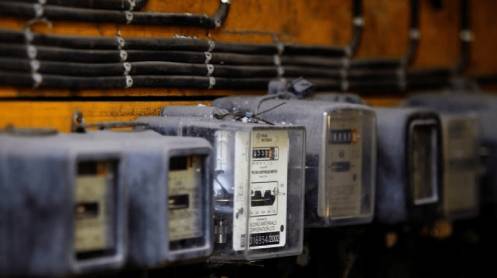ISLAMABAD: Caretaker Minister for Power and Petroleum Muhammad Ali has said that the government is working on revising electricity tariff structure to reduce the cost of electricity as export industry cannot compete with regional competitors that are supplying electricity at 9 Cents/ kWh.
Testifying before the reconstituted Senate Standing Committee on Power, now headed by Senator Azam Nazir Tarar, the Caretaker Minister, who was forced to attend the meeting, said that Power Division is working on rationalisation of electricity tariff formula meant to ensure electricity supply to industry sans the burden of cross subsidy to other consumer categories.
Muhammad Ali stated that the current energy sector circular debt stood at Rs 4.5 trillion (gas and power), which the country cannot afford. However, an official said that as per an agreement with international financial institutions, circular debt will be capped at Rs 2.310 trillion as the government has approved a subsidy of Rs 972 billion in the budget.
Need stressed for reducing cost of power production, ending uniform tariff policy
“We have to reduce power cost and increase industrial consumption,” he said adding that there are five components of tariff, i.e., capacity payment which is approximately 60 percent of tariff, fuel payment, transmission and distribution cost, interest on PHPL debts and taxes on power, which need to be reviewed.
He said, Power Division is also working on some solution to circular debt but it is not an easy to bring it down due to future capacity payments. However, Power Division is working on tariff components including fixed components which have to increase adding that there is a mismatch between revenue side and cost side. With revision in variable component, tariff will automatically come down.
He further stated that the government must do away with cross-subsidy in power sector, which according to him, is on the higher side – at around Rs 300 billion.
“We have to increase our fix component and eliminate cross subsidy, in addition to increasing consumption which can come from industry,” he added.
The Caretaker Minister further stated that changes will be made in top management of Discos and Board of Directors to strengthen working and governance of companies.
He said working on rationalisation of tariff will be completed in a month’s time, adding that if variable charges come down, it will have an impact on tariffs.
Managing Director, NTDC said that Pakistan’s tariff is 35 per cent higher as compared to neighbouring countries which will come down with increase in share of renewable energy i.e. hydel, solar and wind.
The Caretaker Minister stated that agreements with IPPs cannot be opened as they are backed by government guarantees, adding that contracts with power generation companies in rupees are not possible as they were raised loans in dollars.
Chairman Standing Committee, Azam Nazir Tarar, gave 20 days to the Caretaker Minister for a comprehensive briefing on two suspicious contracts which the committee is investigating for the last few months.
Chairman Standing Committee made it clear that he would not allow anybody to sweep the issue under the carpet and warned that if anything is found suspicious, the matter would be referred to concerned quarters (NAB or FIA).
A detailed information was given about the top recovery Discos and the low recovery Discos. The Committee was informed that LESCO, GEPCO and IESCO have made significant recovery while QESCO is worst performing as its receivables stood at Rs 585 billion of Rs 522 billion are on account of agriculture tube-wells. An annual increase of Rs 90 billion is added each year due to agriculture tube-wells.
Beside others, the meeting was attended by Senators Fida Muhammad, Dilawar Khan, Saifullah Sarwar Khan Niazi, Zeeshan Khanzada, Sana Jamali, Haji Hidayatullah and Bahramand Khan Tangi.







